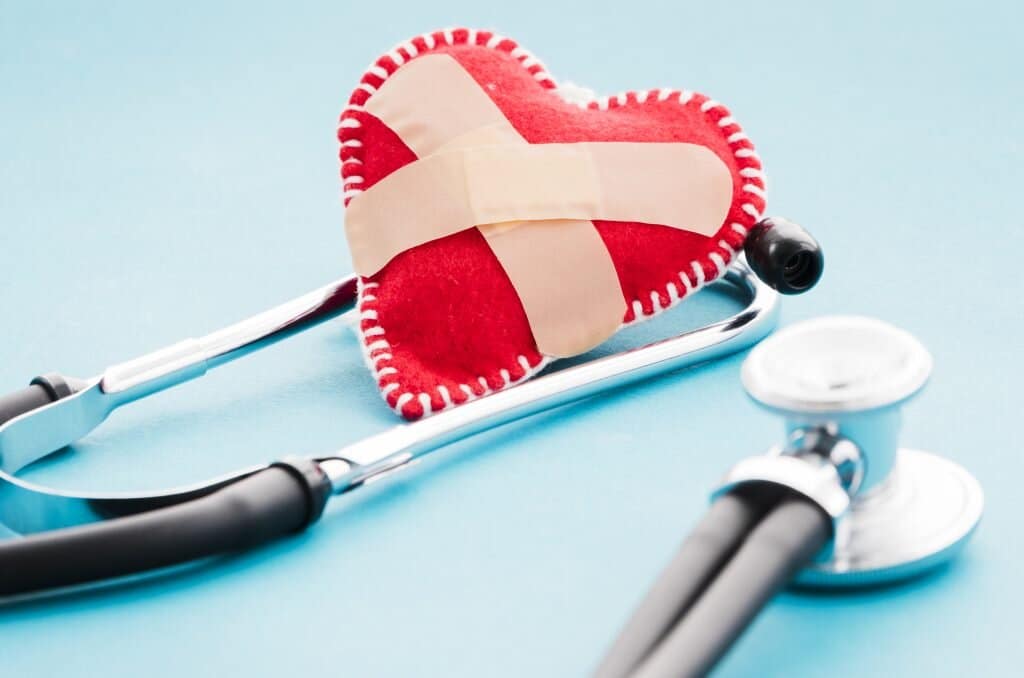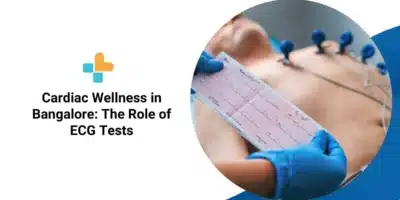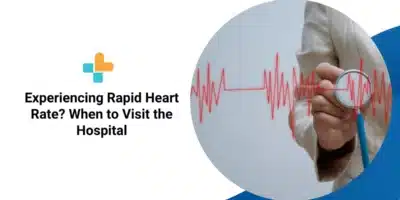
Heart diseases can be lethal if not diagnosed and treated early on. There are many tests available to suggest the treatment and medications for your specific heart disease. Read this article to learn about the process and risks involved in the tests that will be used to diagnose your heart disease.
There are many types of heart diseases, like heart failure, arrhythmia, congenital heart disease, cardiac arrest, coronary heart disease etc.
Your Cardiologist can suggest you one of the six diagnostic tests mentioned below:
- Electrocardiogram (ECG)
- Echocardiogram (Ultrasound)
- TMT
- Cardiac Catheterisation
- MRI
- Angiography
- Cardiac computerized tomography (CT) scan
Let’s find out more about the tests for heart disease and the most suitable one for you.
Electrocardiogram (ECG)
ECG is used to measure the electrical activity of the heartbeat. With every heartbeat, a wave appears on the graph of voltage to time. Undergoing an ECG test, your doctor can determine the irregularities of the heartbeat, which reflects disorders like chest pain (Angina), slow heartbeat (Bradycardia), fast heartbeat (Hyperventilation), etc.
ECG doesn’t involve any surgery or medication. The doctor will make you change your clothes to a hospital gown and will attach a few electrodes with a gel to your arm, chest and legs. You have to lie still on the bed without talking or making any movement. The ECG machine records your heart activity on the graph.
The process usually takes only ten minutes and your doctor may give you the report within half an hour of the test.
Echocardiogram
Echocardiogram (echo) is a process of making pictures of a heart by using high-frequency sounds (Ultrasound). Cardiologists use this to check the structure of your heart, including its size, thickness, and movement of walls, proper functioning of the heart, arteries, tumour in the heart, and many other disorders.
There are further some types of echocardiogram as follows:
- Transthoracic echocardiogram
- Transesophageal echocardiogram (TEE)
- Stress echocardiogram
- Intravascular ultrasound
- Doppler echocardiogram
The process is non-invasive and generally, involves generating images of the heart with ultrasound. During the process, the doctor may inject a dye or a saline solution into the veins to get clear images of the heart. You will have no difficulties during the procedure.
TMT
TMT treatment stands for a treadmill test and is also referred to as the cardiac stress test. This method helps the doctor to know about your heart will respond after it is pushed. It determines how far your heart can go before the blood flow to the heart stops or it encounters abnormal rhythm. TMT is an invasive method and does not require much time for its execution.
Cardiac Catheterisation
This process is used to test how well your arteries are supplying blood to the heart. It is helpful to find out if you have disease related to heart muscles, valves, or coronary arteries. It is also useful in performing a biopsy, angiogram, congenital heart defects, and many other treatments.
Cardiac catheterisation is very helpful in treating Coronary Artery Disease (CAD). It is a minimally invasive yet safe procedure and is completed by inserting a catheter into the artery from your groin, arm, neck to your heart. but may possess minor risks like perforation, allergic reaction to the dye, bleeding, etc.
The process generally takes about 30 minutes but recovery time can add several hours. It has very low risks and many people undergo the test successfully without inducing any complications.
Magnetic resonance imaging (MRI)
The MRI Machine uses strong magnetic fields and radio waves to create detailed images of the structure around and within the heart. Cardiac MRI is used to diagnose many problems like:
- Congenital heart defects
- Coronary heart disease
- Damage from a heart attack
- Heart failure
- Heart valve defects
- Inflammation of the membrane around the heart (Pericarditis)
Cardiac MRI is usually safe and will have no harm to your body. However, MRI will not be valid if a metal object is detected during the test like Pacemakers, inner ear implants, etc. It is not recommended for a lady who is pregnant for less than three months.
Angiography
Coronary Angiography is carried out to determine the size, functioning, blockage of arteries by imaging your blood vessels with x-rays. It is often performed with cardiac catheterisation. A catheter is inserted in the highway, and a dye is passed through it to highlight the area of blockage by X-rays.
A coronary angiogram is performed to diagnose the reasons for:
- Chest pain (angina)
- New or increasing chest pain (unstable angina)
- Birth heart disease (congenital heart disease)
- Abnormal results on noninvasive heart test
- Other blood vessel problems (Coronary artery disease)
Angiography has some risks like infection, allergy to dye, bleeding, stoke, etc.
Cardiac computerized tomography (CT) scan
A cardiac CT scan is used in imaging your heart with X-rays. They can determine the structure of your heart and detect the area of blockage in heart arteries, fat and calcium deposits in the coronary arteries, etc.
Cardiologists can suggest you have CCTA when other x-ray procedures like ECG, echocardiogram, chest X-rays could not provide enough information about your specific disease.
NOTE: CCTA is not a replacement for Coronary Angiogram (Cardiac catheterisation) as it is the most accurate test for determining Coronary Artery Disease (CAD).
As you have learned, there are various tests available to diagnose your specific heart disease. You could be a little bit confused about which one to opt for. If you live near Chandigarh, you can consult the expert doctors at Ayu health.
How can Ayu health help you?
We are India’s most trusted network of high-quality hospitals, and we have a team of pre-eminent cardiologists. We have successfully diagnosed and treated thousands of patients suffering from heart diseases.
Ayu health can offer you diagnosing services like:
- MRI
- CT scan
- PET-CT
- CT Angiography
- Coronary Angiography
- Coronary Angioplasty
If you are looking for a leading cardiologist who can suggest you an accurate diagnosis in Chandigarh or nearby, you can call +91 – 6366 100 800 or visit our website to learn more.
Our Hospital Locations
Cardiology Surgery Hospitals in Chandigarh | Cardiology Surgery Hospitals in Bangalore | Cardiology Surgery Hospitals in Jaipur | Cardiology Surgery Hospitals in NCR | Cardiology Surgery Hospitals in Hyderabad
Our Doctors
Cardiology Surgery Doctors in Chandigarh | Cardiology Surgery Doctors in Bangalore | Cardiology Surgery Doctors in Jaipur | Cardiology Surgery Doctors in NCR | Cardiology Surgery Doctors in Hyderabad
About the Author

Dr. Magesh Balakrishnan
Dr. Magesh Balakrishnan is a renowned cardiologist currently practicing at Ayu Health, Bangalore.
He has 16 years of experience in this field. He has excellent skills in performing all cardiac diagnostic procedures/ tests. He has performed emergency and elective angiographies and angioplasties, device implantation (Pacemaker, AICD & CRT)



